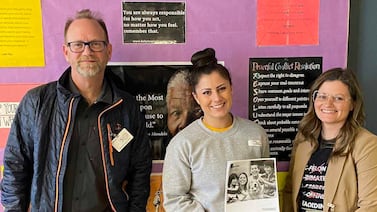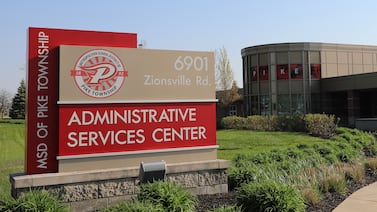A new report in the wake of Indiana’s virtual charter school enrollment scandal reveals how most of the state’s $7.5 billion school funding system is largely based on trust — and lacking controls that could flag potential fraud.
The state relies on schools to record how many students they enroll in order to calculate funding and doesn’t compare those numbers to other data sets that could help identify problems, noted the special report from state auditors released Friday.
That’s why state education officials didn’t catch signs in data reports that Indiana Virtual School and Indiana Virtual Pathways Academy had for years been claiming millions in state funding for students who weren’t actually attending the online schools.
But the Indiana Department of Education contends that it can’t audit all the data reports that schools submit, and for charter schools, the ultimate responsibility for oversight lies with authorizing agencies, not the state.
“The system of data collection and verification underlying all data submission to IDOE relies on a foundation of trust that school data personnel and school officials are doing their best to provide truthful and accurate counts of students when required,” the department wrote in a response to the state auditors’ report. “IDOE does not have the resources or capacity to conduct even a sampling audit of the 1.13 million student records collected each year to support tuition support allocations.”
Instead, it has been the state auditors’ responsibility to investigate data discrepancies, the department said. Education officials added that they would support “greater accountability and oversight for virtual charters schools, particularly as it relates to membership, attendance and enrollment.”
This is the third report in a series of investigations by the State Board of Accounts into the alleged $86 million enrollment fraud and self-dealing scheme at Indiana Virtual School and Indiana Virtual Pathways Academy.
Another report Friday called for the virtual charter schools’ oversight agency, Daleville Community Schools, to repay $2.2 million in fees collected based on the schools’ inflated enrollment numbers. A report earlier this year detailed the misspending at the virtual schools.
Friday’s report on the flaws in the state funding system found that the education department doesn’t compare data reports on real-time enrollment, course completion, or attendance with the enrollment report that schools submit for state funding. The state also relies on schools to verify that students live in the state.
In the case of the two virtual charter schools, the state also relied on several enrollment reports that didn’t bear the required signatures, the report said.
The Department of Education pointed out that Indiana has an “inconsistent definition” of what counts as virtual attendance but acknowledged that Indiana Virtual School’s claim of 100% attendance for six years “likely should have raised the attention of state officials.” Officials “would never expect a school that was accurately reporting attendance would report at 100%,” the response noted.
Following the auditors’ investigation, the state education department noted that it analyzed district-level data on course completion, students who leave Indiana schools, older students, and changes in enrollment between the fall and spring semesters. Some of that data could flag irregularities in enrollment figures. But it’s not clear whether any changes or inquiries resulted from the analysis, or whether the department will run those reviews regularly.








